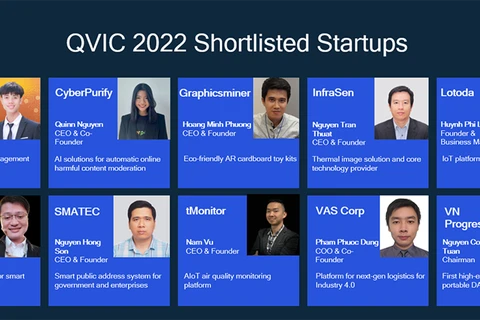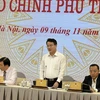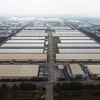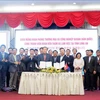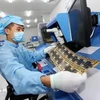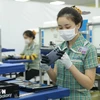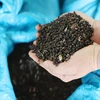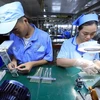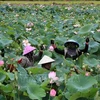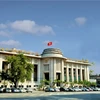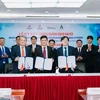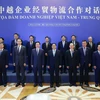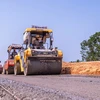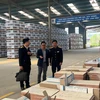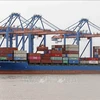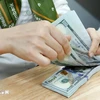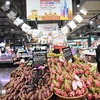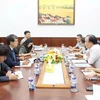 Experts at a panel discussion on hi-tech agriculture start-ups in HCM City last week. (Photo vov.com.vn)
Experts at a panel discussion on hi-tech agriculture start-ups in HCM City last week. (Photo vov.com.vn) Pham Lan Anh, head of the communication department at the Ca Mau Petroleum Fertiliser Joint Stock Company, said hi-tech agriculture offers solutions to consumers and businesses’ demand for clean, high-quality produce, improves farming productivity and creates reliable data.
But the use of technology remains limited since it is still relatively new in Vietnam and many farmers are still used to traditional methods, she said.
The country has a diverse range of agricultural products, but does not have a consumer market based on actual supply and demand, and farmers lower prices to sell their products and compete with rivals, she pointed out.
“It’s difficult to build a brand for Vietnamese agricultural products because of low economic value,” she said.
“Farmers only pay attention to producing raw agricultural products instead of creating added value for the products.”
Most farming start-ups do not share information and business opportunities with each other, making it difficult to build agricultural markets, experts said at a panel discussion hi-tech agriculture start-ups in Ho Chi Minh City last week.
Most do not clearly define the objectives for each stage of their business, they said.
Most want to quickly sell out products instead of patiently marketing and branding them, but to be successful they need to build a long-term business strategy and strengthen linkages within the start-up eco-system, they pointed out.
Many are household or individual businesses who do not have enough resources, making the linkages imperative, they said.
They should not expect profits immediately like other commercial activities and services, need to have a thorough understanding of the market, culture and climate and should network with professionals in various fields to succeed, they added.
The discussion is part of the Innovation Start-up Project Competition organised since 2012 by the HCM City Business Study and Assistance Centre in collaboration with the Rural Youth Committee of Central Youth Union.
The innovative agricultural start-up project has been supporting the country’s start-up community for the last 10 years.
It has organised more than 320 training classes, seminars and talks for more than 25,000 participants./.
VNA



